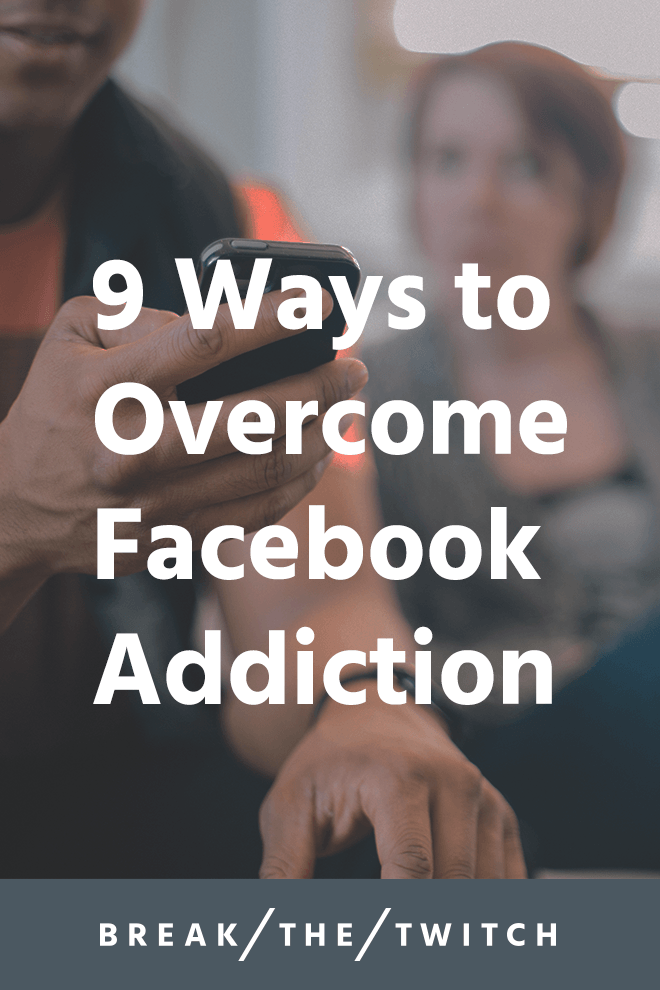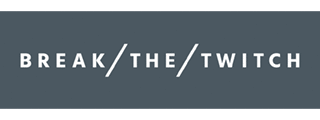
On a day like any other, I was standing at my desk working on a blog post, trying to come up with the appropriate words to write. Frustrated at my lack of progress, I turned, looked out the window for a moment then looked back to my screen.
My blog post had disappeared, but the infamous blue and white website we all know so well had replaced it.
Later that afternoon while working on another written piece, a co-worker walked into my office and interrupted me mid-sentence. After a quick conversation, I looked back at my Word document and found a sentence that looked approximately like this:
The efficiencies of quantum mechanics determine that sevfacebook
While that sentence is 100% fabricated, the example of what happened to the end of it is 100% true. For the second time that day, I had subconsciously typed the word “facebook” without realizing it, and it scared the crap out of me.
I knew it was time for a change.
What started out as a simple way to connect with college classmates has become an all encompassing communication hub where we get our news, updates on family members while spending a heck of a lot of our time.
The average user now spends about 50 minutes per day on Facebook.
I’d venture to guess that the 50 minutes aren’t in a solid block either, occurring in small 2-3 minute chunks as notifications come in throughout the day.
These bursts create small interruptions, pulling us away from what we may be doing, eating, working on, or creating. It’s no accident that Facebook brings us back as frequently as possible. For the company, our attention equals dollars.
Like any habit loop, Facebook is designed to work its way into our brain as a trigger-habit-reward cycle that is incredibly difficult to break.
At the surface, Facebook is a tool—not inherently good or bad—but its impact on our lives is determined by how we use it.
Imagine picking up a hammer 35 times per day and using it wherever you happen to be. When you need to drive in a nail, picking up a hammer makes a lot of sense. Otherwise, it would seem quite ridiculous.
Facebook is the hammer and connecting with friends and family is the nail. Everything else gets diminished by the hammer— our personal lives, intentions, and meaningful connections to the world.
If you feel like you’re losing the battle against the Facebook addiction twitch, there is help.
These suggestions to overcome Facebook addiction are ordered from least extreme to most, allowing you to choose the options that are right for you.
1 / Log out of the website
Make it so that you have to manually log in every time you want to use Facebook. Doing this will give you a few seconds to decide if you actually need to log on, creating intentional friction in the process. This strategy works best when on the computer, but can also work if you don’t use the Facebook app on your phone.
2 / Temporarily block the site
By using a productivity browser extension like Strict Workflow, you can hit a button that will block any websites you don’t want to visit for a specific duration of time. Once break time comes around, it will allow you to go to the sites of your choosing. Click the button again, and the sites will be blocked while you focus. These blockers help reduce the number of times you may bounce to Facebook during a focus period.
3 / Turn off all app notifications
This is definitely recommended if you’re wanting to overcome Facebook addiction. Let’s face it, it’s hard not to check when you see there are notifications. And Facebook doesn’t hesitate to show you as many as possible to get you back on the scroll. It’s best when you intentionally decide to check Facebook, without hearing an alert that triggers your attention. Reduce distractions and the urge to check and scroll by turning off all notifications in the app.
4 / Delete the app
While you can still use your mobile browser to check Facebook, doing this significantly reduces the notifications. The app is made to be as low friction as possible and deleting it will help you avoid using Facebook when it’s less appropriate. Not having the app helps break the twitch of being able to check the site so quickly. Even more powerful is if you use the first tip and log out of the site, forcing yourself to log in on your phone.
5 / Kill the newsfeed algorithm
If you’re habitually checking Facebook, one way to reduce the desire to do so is to have no new content come up when you do. You can use a browser extension called FB Purity to automatically reorder the newsfeed into chronological order. That way, Facebook won’t show you new content every time you open the site. And as a result, it will be much less interesting when you do visit and scroll.
6 / Block the newsfeed completely
Using the same FB Purity app, you can select an option to delete the newsfeed all together. It will show up as a blank space in the middle of your screen and won’t entice you to scroll down if you need to log on to Facebook to post something or check on one of your business pages. You can take care of whatever you might need to for work and then be done with it.
7 / Deactivate your account
Unfortunately, Facebook has made it ridiculously easy to reactivate your account. All you have to do is just log in again. But, the best way to break a habit cycle is to detox and rewire your brain from that habit. I’ve found that it takes at least five to seven days to break the initial ‘twitch’ habit cycle, so commit to at least that. Deactivate your account and log back in when you’re ready.
8 / Delete your account
You have to dig around in your Facebook settings to find this option. But if you feel that Facebook isn’t benefiting you in meaningful ways, just get rid of it. If you want to keep your content, you can download your entire Facebook history in one small zip file and backup everything you’ve ever posted. To continuing sharing with others, you can start a blog where people can find you with a quick Google search and where you can share your life updates and learnings.
9 / Throw your phone and computer into a ravine
If all else fails, find a property on which to homestead, grow your own food, and throw your electronic devices into the fire river of Mordor. There are fewer things better than some quality time in nature to help beat an addiction. Perhaps we need to take some extreme measures to ensure our own progress. Getting rid of your electronic devices is a solid move in overcoming extreme Facebook addiction.
Facebook is a tool that just like any other, should benefit us when we use it. When used intentionally, it’s a valuable resource that allows you to connect in meaningful ways. If you feel like it’s controlling your life more than it should, use the strategies above to overcome Facebook addiction.
Free 7-Day Digital Detox
Create some much needed space in your digital life with this free 7-day email video series from Break the Twitch.
Interested in learning more? Check out what it was like for me to deactivate my Facebook account for 60 days, and my friend’s experience taking a social media sabbatical.

